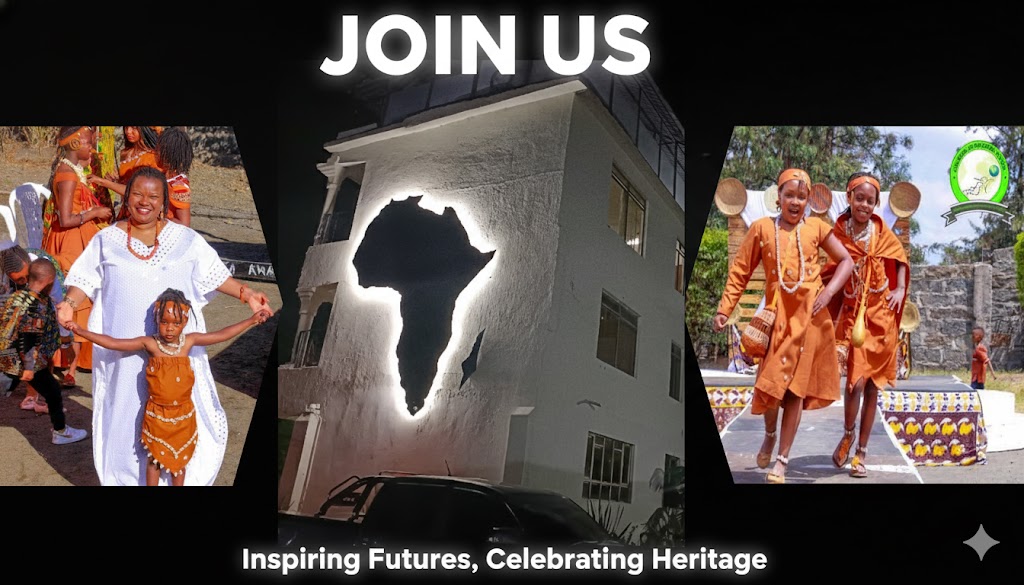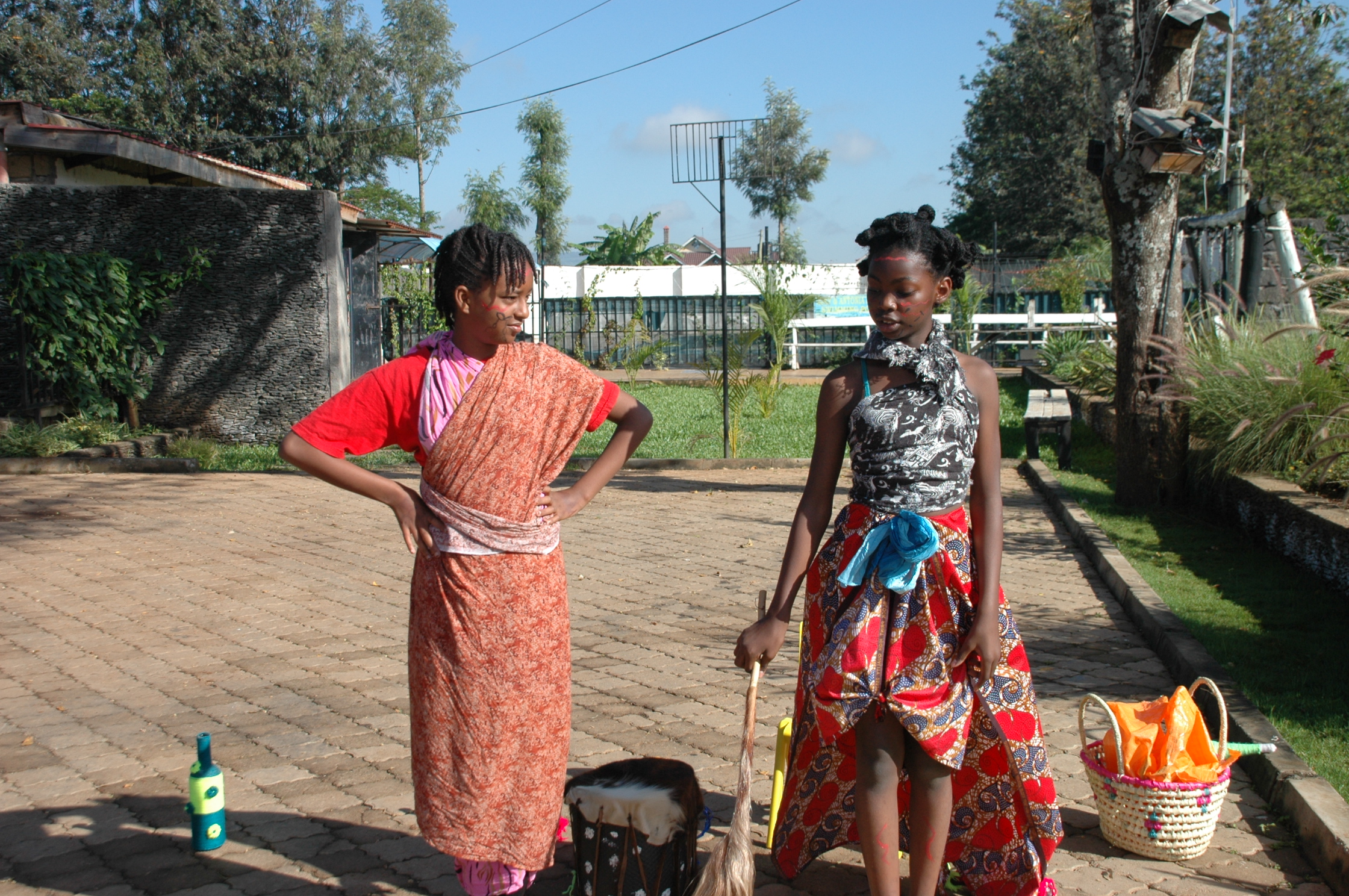Creating the First Afrocentric Teacher Training Toolkit
“Until the lion learns to write, every story will glorify the hunter.”
Africa is the youngest continent on Earth — over 60% of our people are under 25. Yet, more than half would leave the continent if they could. Imagine that: a generation that doesn’t recognize home.

How so?
For too long, African classrooms have echoed with stories that are not our own.
Children open textbooks filled with foreign legends and foreign heroes — faces, names, and histories that rarely look or sound like theirs. On classroom walls hang maps that shrink Africa’s vastness, and on exam papers, brilliance is often measured by how well a child can recall another people’s story.
It’s not that our learners lack potential. It’s that the system rarely teaches them to see it.
And so, many of our children learn to speak confidently about Shakespeare, but not Shabaan Robert.
They can describe the French Revolution in detail, but know little about Mau Mau or Mali’s empires of gold.
They grow fluent in global knowledge but illiterate in their own identity.
If education is the tool that shapes nations, then Africa’s must begin to sound like home.
The Disconnect — How Current Systems Fail Our Continent
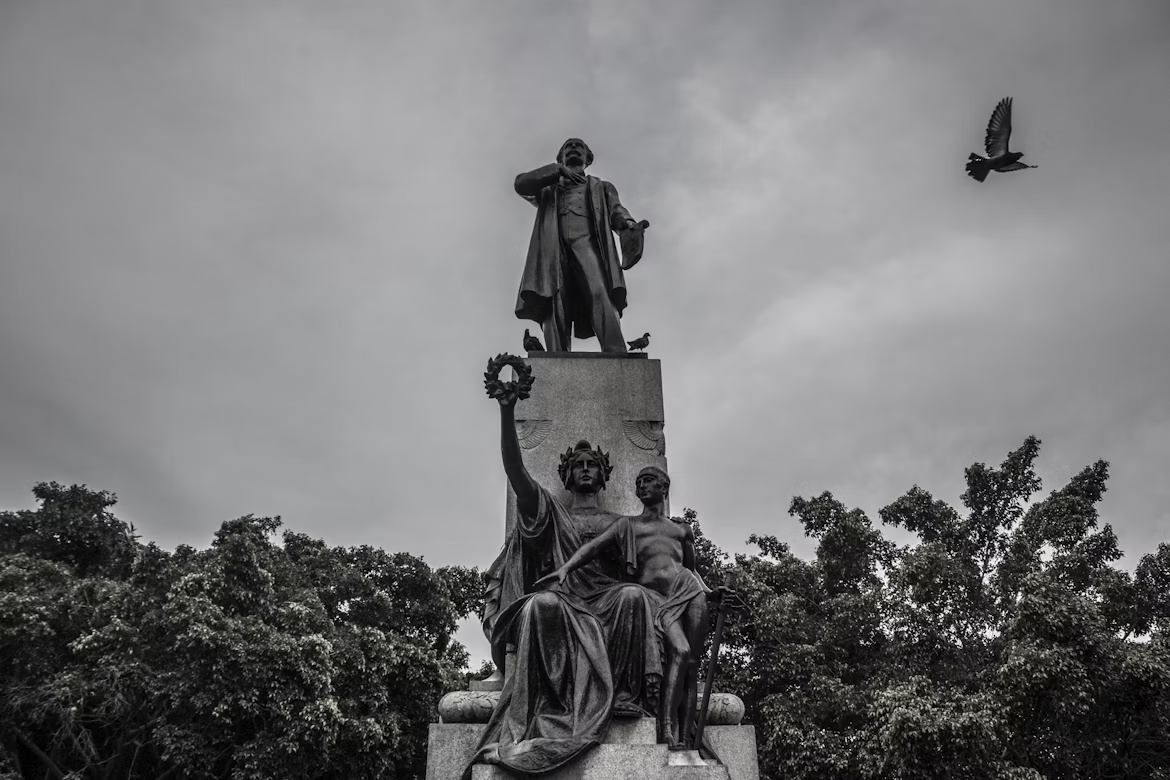
When colonizers came, they didn’t just redraw Africa’s borders — they rewired her classrooms.
The indigenous systems that once taught wisdom through storytelling, apprenticeship, song, and community were replaced by imported syllabuses designed to produce clerks, not creators.
Not solution drivers for African societies.
Decades later, those systems still linger — polished, renamed, and certified, but often detached from our lived realities.
Students master the mechanics of math and grammar but struggle to find meaning in them. They learn about foreign kings and distant constellations, yet rarely the names of the rivers or heroes that shaped their own villages.
This creates what psychologists call cognitive dissonance — the quiet conflict between who they are and what they’re taught to value.
Many succeed academically but lose cultural confidence.
In their minds, “success” becomes synonymous with leaving the continent — not building it.
And leave they do.
The desire to leave is widespread among the youth: the 2022 African Youth Survey found that 52% of young Africans were likely to consider emigrating in the next three years. This sentiment reinforces the ongoing challenge of ‘brain drain,’ which the African Union (AU) Migration Policy Framework states results in an estimated 70,000 skilled professionals leaving Africa each year.
Not just for money — for meaning.

Because when education fails to affirm identity, young people stop seeing themselves in the continent’s future.
When learning forgets identity, the learner forgets purpose.
Why Culture-Centered Learning Works
The idea that culture improves learning is no longer a theory — it’s a measurable reality.
Case Study 1: San Francisco Unified — When Culture Reignited Learning
When San Francisco schools introduced a 9th-grade Ethnic Studies course for students at risk of dropping out, something remarkable happened.
Attendance jumped by 21 percentage points, students earned 23 more credits, and their GPA rose by 1.4 points — within just one school year.
Follow-up research from Stanford University confirmed that the gains weren’t short-lived: these students were 15 percent more likely to graduate and 15 percent more likely to enroll in college within six years (Dee & Penner, PNAS 2021).
In other words, one culturally relevant class changed their entire academic trajectory.
“When our learners see themselves in a lesson, the silence disappears. Curiosity returns.”
Case Study 2: Oakland Unified — Restoring Purpose and Pride
In nearby Oakland, the African-American Male Achievement (AAMA) program built a curriculum around cultural identity, community history, and mentorship.
Within a year, the dropout rate for Black male students fell by 43 percent, and overall school persistence rose by 3.6 points (NBER Working Paper, Dee & Penner).
Students described the course not as an “extra subject,” but as “a mirror.”
When they could finally see themselves reflected in the material, they began to see value in their own future.
Case Study 3: Harvard Finds Identity Strengthens Creativity & Critical Thinking
Identity is not a distraction from academic rigor — it is the foundation.
Harvard’s Project Zero found that when learning connects to culture, students demonstrate higher self-efficacy and originality in problem-solving. They no longer study just to pass; they study to express.
At FISA, learners explore entrepreneurship through traditional African market systems and code simple games in Kiswahili. By grounding innovation in identity, creativity stops being imported — it is rediscovered.
Case Study 4: Global Evidence — A Pattern Across Continents
Systematic reviews and meta-analyses across hundreds of culturally responsive programs — from Latin America to the Pacific Islands — reach the same conclusion:
When learners experience education that reflects who they are, they’re less likely to drop out, more likely to feel they belong, and more confident in pursuing higher education and leadership roles (Ladson-Billings, Gay et al.).
Belonging, not just brilliance, drives persistence. In fact, researchers now identify a sense of belonging as a stronger predictor of student success than self-efficacy alone.
Cultural learning doesn’t divide; it unites.
“Culture isn’t the past — it’s the context that makes learning possible.”
Lessons from Africa’s Classrooms — FISA’s Proof of Concept
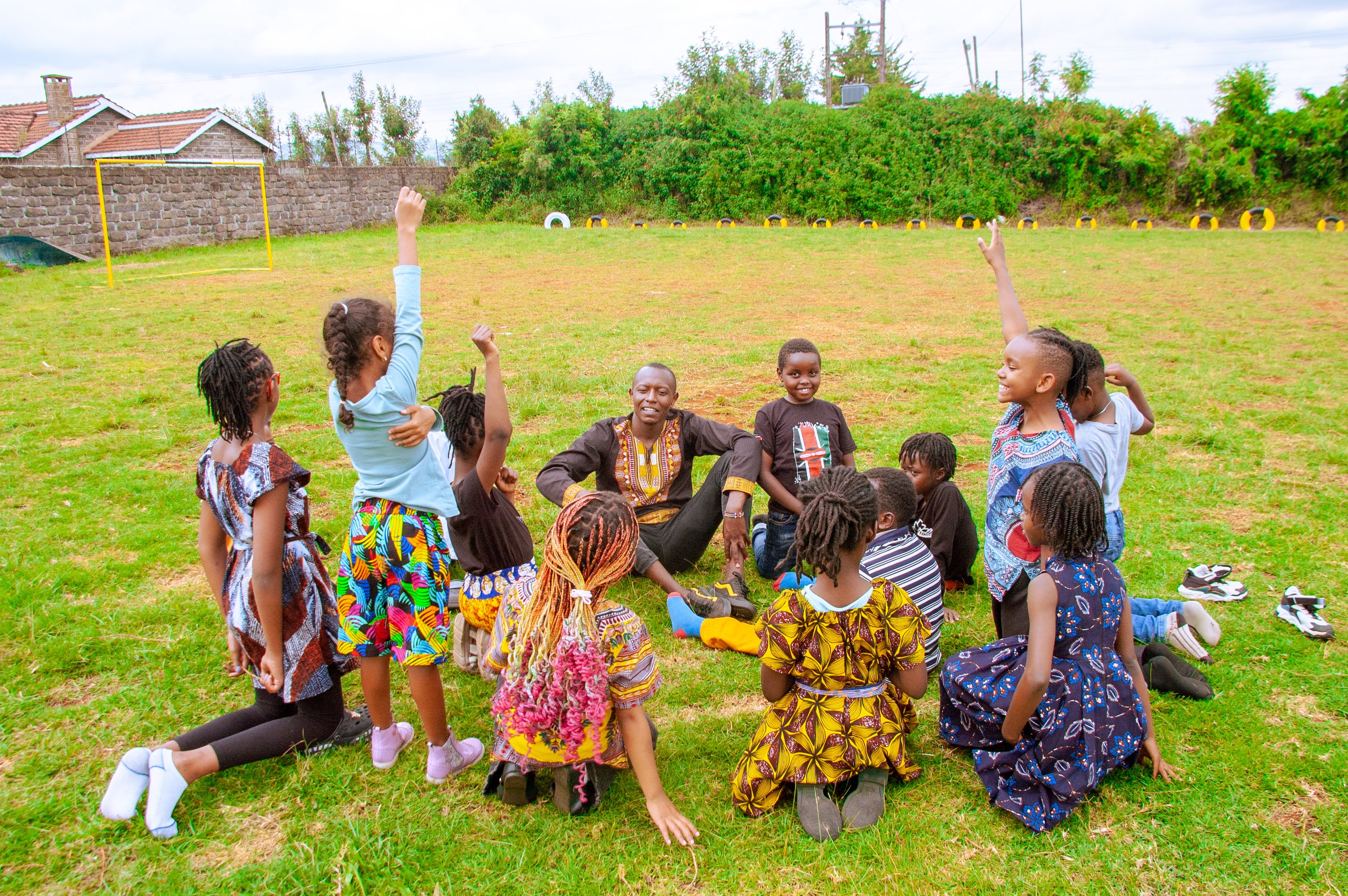
In 2018, Freedom International Schools – Africa began with a single learner and a vision: to prove that academic excellence and cultural identity could thrive together.
Today, more than 700 students have walked through its gates — from Kenya, Africa, Europe, and America. FISA has become a living case study of what culture-centered learning can achieve:
- Science through Indigenous Innovation — studying local water systems before global ones.
- Mother-Tongue Fluency Programs — students learn and celebrate their home languages alongside global ones.
- Storytelling as Leadership — narrative used as both literacy and emotional intelligence training.
- IB Global Standards Fused with African Values — inquiry-based learning grounded in community and ethics.
The results speak clearly.
FISA learners scored a mean 75% in Kenya’s national exams — among the country’s best — while also winning global innovation challenges. Yet the deeper transformation is internal: children once afraid to speak up now lead debates, design projects, and share stories from their tribes with pride.
A parent recently said, “My daughter no longer dreams of leaving Africa. She dreams of building it.”
Beyond Africa — Why Culture-Centered Learning is Global
Culture-centered learning isn’t just an African idea; it’s a universal truth.
In Japan, educators use folk traditions to teach empathy. In Mexico, indigenous languages are being re-introduced to public schools. In Canada and New Zealand, First Nations curricula are reshaping national identity.
Across the world, teachers are rediscovering something Africa has always known: education is strongest when it begins with belonging.
FISA’s forthcoming Afrocentric Teacher Training Toolkit captures this wisdom.
Though rooted in African experience, it is designed for global educators — a practical framework for teaching through culture, wherever you are. Whether in Nairobi, Tokyo, or New York, it helps teachers connect lessons to identity, heritage, and humanity itself.
Because when we teach through culture, learning becomes alive again.
And when a child learns their own story, they gain the courage to write the world’s next one.
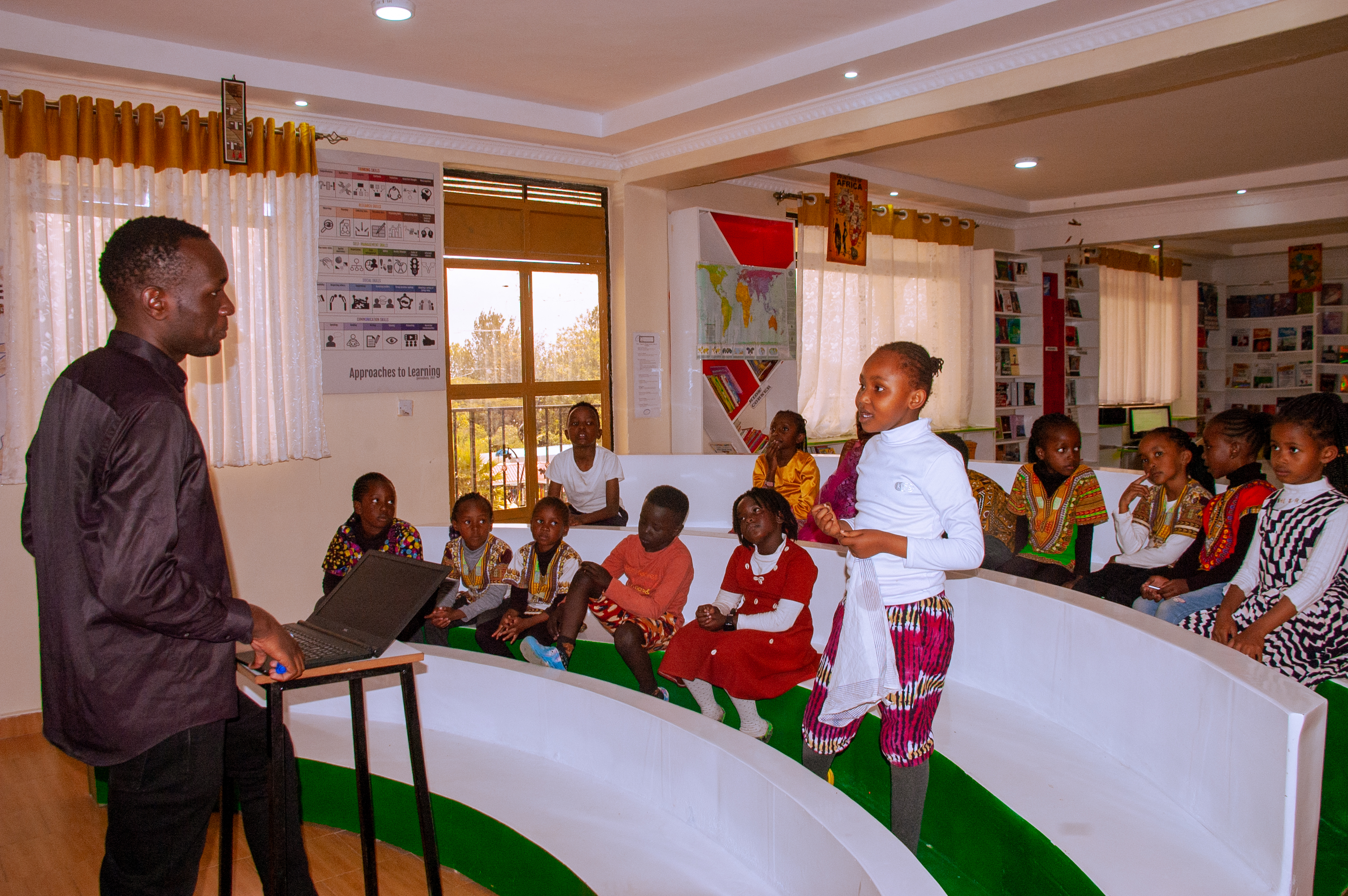
The Opportunity — A Toolkit That Teaches Teachers
Education reforms rarely fail because ideas are bad.
They fail because teachers and learners are left out of the design.
That’s what the FISA Legacy Project[VN1] aims to change.
After eight years of refining a successful Afrocentric and globally aligned learning model, we are ready to translate practice into perfect — and share it with other educators across the continent.
Our vision is simple but radical: to teach teachers how to teach through culture.
The Afrocentric–IB Teacher Training Toolkit will serve as both a research-backed framework and a living classroom resource — helping schools embed identity, ethics, and cultural relevance into world-class teaching practice.
This toolkit will not be a static manual, but a dynamic ecosystem built for accessibility, adaptability, and scale.
What the Toolkit Will Include
1. Practical Curriculum Frameworks
Step-by-step guides that help teachers align lessons with both local culture and global standards. From using indigenous proverbs in literature to exploring physics through local architecture, these frameworks show that world-class inquiry can begin in one’s own backyard.
2. Digital Learning Modules
An interactive online platform offering micro-courses, model lesson videos, and reflection tools — co-created with teachers, for teachers. It allows educators to learn, adapt, and share culturally grounded methods at their own pace.
3. Cultural Content Repository
A living library of African stories, innovations, and historical case studies — validated by educators, researchers, and community elders. This will be open-access, enabling collaboration among teachers across regions and disciplines.
4. Monitoring and Evaluation Tools
Evidence-based assessment instruments that help schools track progress in engagement, identity development, and learning outcomes. These will provide data for continuous improvement and future policy integration.
Built on the “Open Source”-Education Model
The Toolkit will follow an Open Educational Resource (OER) approach — ensuring it remains freely accessible, adaptable, and replicable.
Educators will be able to download, localize, and even contribute back to the resource — creating a self-sustaining cycle of innovation led by African teachers themselves.
The first phase will focus on African classrooms, where cultural disconnection from curricula is most acute. Once proven and refined, the same model can then be adapted to other regions — guiding educators in Asia, Latin America, and beyond to integrate culture into their own teaching contexts.
Africa will lead. The world will relearn.
Why Now: Africa Cannot Wait
The urgency is real — and measurable.
-
Africa’s youth population is the fastest-growing in the world.
By 2050, the continent will host one-third of all young people globally — over 1 billion under 25 (UN DESA, 2023).
Whether that becomes a demographic dividend or a development crisis depends on the quality and relevance of education today. -
Learning poverty remains dangerously high.
According to the World Bank (2023), 9 out of 10 African children cannot read and understand a simple text by age 10. But literacy is not just about decoding words — it’s about recognizing one’s world in them. -
Teacher training gaps are widening.
The UNESCO Institute for Statistics (UIS) estimates Africa will need over 15 million new teachers by 2030 to meet universal education goals. Yet fewer than half currently receive formal pre-service training that includes cultural or contextual pedagogy. -
Global education models are shifting.
The OECD Future of Education and Skills Report (2022) highlights “intercultural competence” and “global citizenship” as core skills for the 21st century. Yet Africa’s contribution to that dialogue remains underrepresented in teacher preparation programs.
The FISA Legacy Project responds directly to this moment — not with charity, but with tried and tested knowledge infrastructure.
By creating a toolkit that captures Africa’s own educational innovation, we ensure that the next generation of teachers will not just deliver lessons — they will deliver liberation.
Be Part of The Story that Changes Africa’s History
Education has always been the quiet architect of a nation’s destiny.
But for too long, Africa’s story has been told in borrowed voices — its children taught to dream in other people’s languages, its teachers armed with tools that do not fit their hands.
The time to change that is now.
The FISA Legacy Project isn’t just about building a toolkit.
It’s about building a generation of teachers who can restore pride, purpose, and creativity to African classrooms — and, in time, to classrooms around the world.
Because when we teach teachers how to teach through culture, we plant something far greater than knowledge — we plant belonging.
This is where you come in.
How You Can Be Part of the Story
1️⃣ Donate or Invest — Fuel the Vision
Every contribution directly supports the development of the FISA Legacy Project — from research and documentation to teacher training and digital access.
Your gift helps shape the blueprint for a new kind of education: one rooted in identity, excellence, and possibility.
👉 Donate Now
2️⃣ Partner — Build With Us
We’re inviting universities, teacher colleges, ministries of education, and NGOs to collaborate on training, content co-creation, or pilot implementation.
If you’re passionate about education reform and cultural renewal, let’s connect.
📩 Partner with FISA
3️⃣ Share — Amplify the Movement
Even one share can open a door.
Tell your community about the project. Tag an educator. Forward the story.
Help us spread the belief that Africa’s classrooms can once again become laboratories of pride and innovation.
📣 Share the Story
🌿 Support the FISA Legacy Project
Because when a child learns their story, they begin to rewrite their nation’s.


